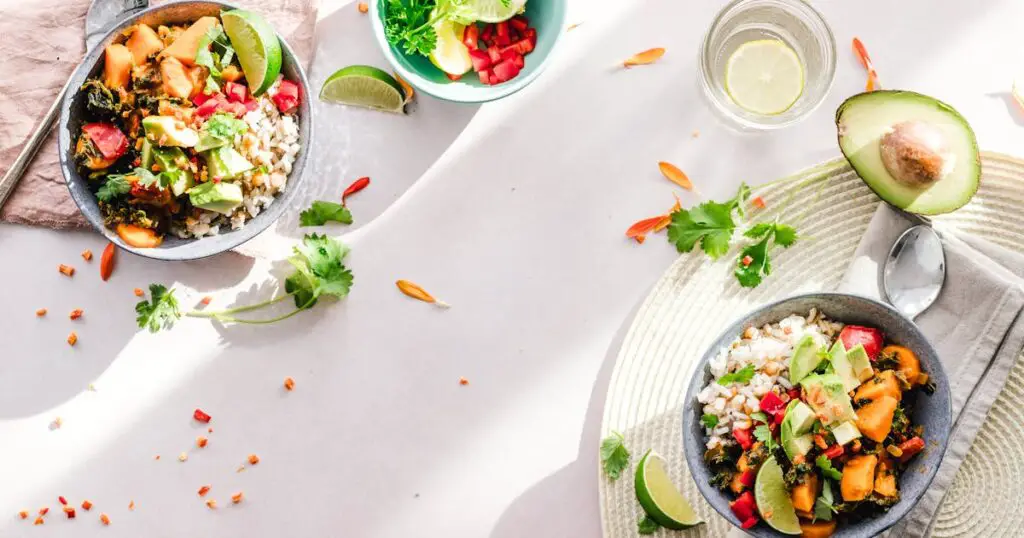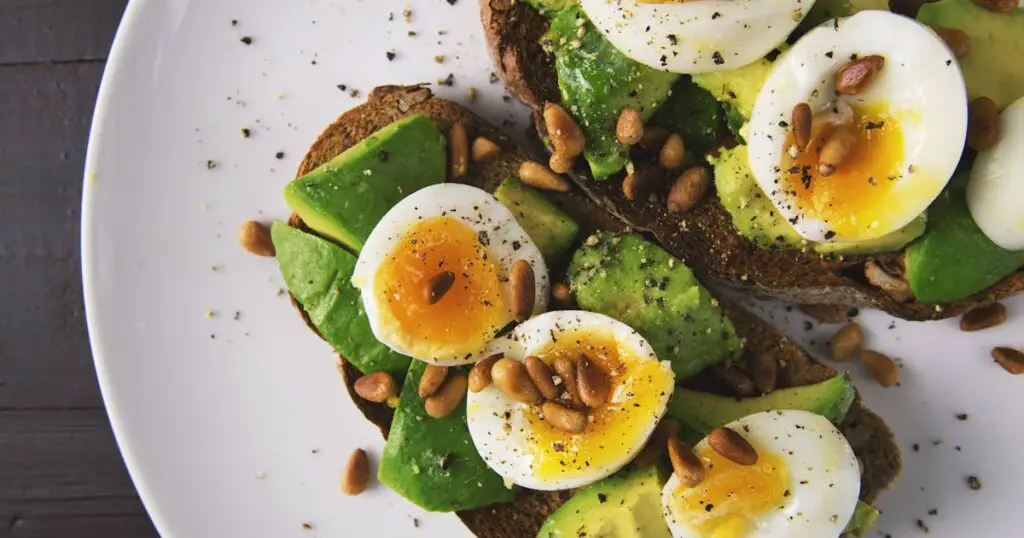Welcome to our guide on making a diet plan that is both effective and sustainable. We understand that the topic of dieting can be overwhelming and confusing, especially with all the fad diets and conflicting information out there.
That’s why we’re here to offer some practical tips and insights on how to create a healthy and balanced diet plan that works for you. Our approach is community-oriented and inclusive, focusing on the local context, cultural influences, and personal preferences. So let’s dive in!

Avoid Calorie Counting
One of the main reasons why many people struggle with maintaining a diet plan is because they are constantly counting calories. While this may work for some, it can be restrictive and unsustainable for many. Instead of obsessing over calorie intake, focus on incorporating nutrient-dense foods into your diet. These are foods that are high in vitamins, minerals, and other essential nutrients while being relatively low in calories. Examples include leafy greens, nuts and seeds, whole grains, lean protein sources like tofu or fish, and healthy fats like avocado and olive oil.
Another helpful approach is to practice mindful eating. This means paying attention to your body’s hunger and fullness cues, rather than relying on strict calorie restrictions. Eat when you are hungry and stop when you feel satisfied, not overly full.
Find Nutrient-Dense Foods
As mentioned earlier, incorporating nutrient-dense foods into your diet is key to a healthy and sustainable diet plan. But how do you know which foods are nutrient-dense? The key is to focus on whole, unprocessed foods that are rich in vitamins, minerals, and antioxidants. These include fruits, vegetables, legumes, nuts and seeds, whole grains, lean protein sources like chicken or beans, and healthy fats like avocado or olive oil.
These foods not only provide essential nutrients but also keep you feeling full and satisfied, preventing unhealthy snacking.
Another tip is to add variety to your meals. Eating the same foods every day can get boring and may lead to cravings for unhealthy options. Experiment with different fruits, vegetables, grains, and protein sources to keep things interesting while still getting a variety of nutrients.
Stick to an Eating Schedule
Having a consistent eating schedule can also be beneficial for maintaining a healthy diet plan. This means having regular meals and snacks throughout the day, rather than skipping meals or overeating in one sitting. Aim to have three main meals and two to three small snacks evenly spaced out throughout the day.

It’s also essential to listen to your body’s hunger and fullness cues. If you are not hungry at your regular mealtime, don’t force yourself to eat. Similarly, if you feel hungry between meals, have a healthy snack like fruit or nuts instead of reaching for processed and high-calorie snacks.
Find a Meal Prep Method That Fits Your Routine
Meal prep is an excellent way to ensure that you have healthy and nutritious meals ready when you need them. However, it can be overwhelming to prep meals for an entire week at once. Instead, find a meal prep method that fits your routine and cooking skills.
For example, some people prefer to meal prep ingredients, such as cutting up vegetables or pre-cooking protein sources, and then putting them together in different combinations throughout the week. Others may prefer to cook full meals and freeze them for later use. Find what works best for you and your schedule.

FAQs
In this section, we will be delving into some of the most common inquiries and curiosities that surround our topic.
Is it necessary to follow a strict diet plan?
No, a strict diet plan may not be sustainable in the long run. Instead, focus on incorporating healthy and nutritious foods into your meals while listening to your body’s cues.
Can I still enjoy my favourite foods while following a diet plan?
Yes, it’s all about balance and moderation. You can still enjoy your favourite foods in moderation while making sure to include nutrient-dense options in your overall diet.
How do cultural influences play a role in creating a diet plan?
Cultural influences can impact food choices and preferences. Embrace and celebrate your cultural foods, but also try to incorporate a variety of healthy options from different cultures into your diet.
Is it okay to have cheat meals while on a diet plan?
It’s important to avoid labelling foods as “good” or “bad.” Instead, focus on balance and listening to your body’s cues. If you do have a less healthy meal, don’t feel guilty and make sure to get back on track with your regular eating habits.
Conclusion: How to Make a Diet Plan?
Creating a diet plan doesn’t have to be complicated or restrictive. By focusing on nutrient-dense foods, listening to your body’s cues, and finding a meal prep method that works for you, you can maintain a healthy and sustainable lifestyle.
Remember to also embrace diversity and cultural influences in your food choices, and don’t forget to enjoy your favourite foods in moderation.



Leave a Comment
You must be logged in to post a comment.